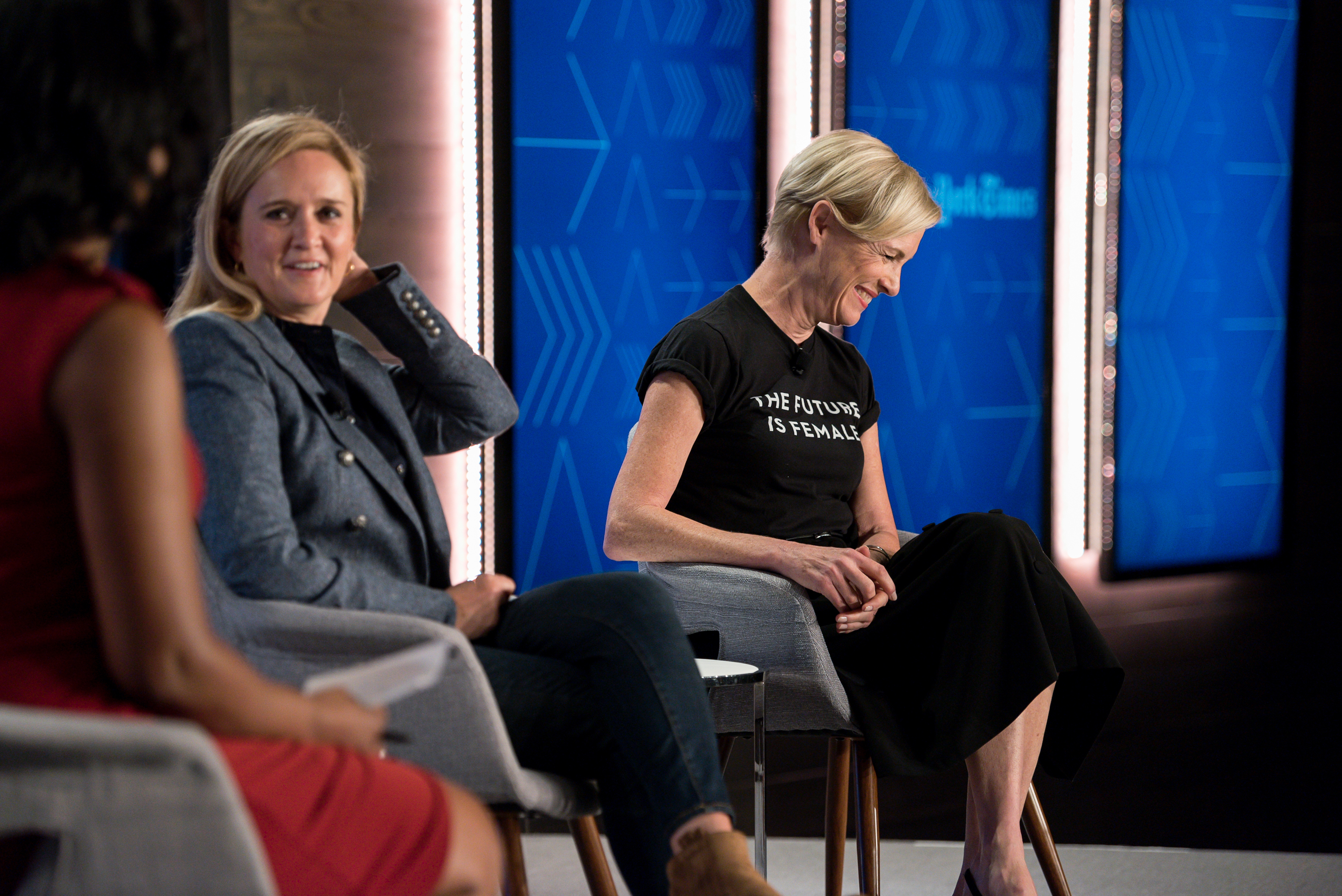Former NFL Player Just Nailed What Men Don’t Get About the #MeToo Movement
At The New York Times’ inaugural New Rules Summit, held Sept. 26-27 in Brooklyn, New York, Wade Davis, a corporate inclusion consultant and former NFL Player, delivered a poignant message about male allyship: “Here’s what men don’t get about the #MeToo movement,” he said. “It’s not about women; it’s about us. Women are laying themselves bare for us to wake up.”
Davis spoke openly about his own personal journey to becoming a male ally and made the point that in order for men to truly buy into the case for gender diversity, “you have to make it personal. If it’s not personal, and if they’re asking you for data, [that won’t be effective,]” he argued, suggesting that we need to stop emphasizing the business case for gender diversity. “The data’s been there since 1980, and nothing’s really changed.”
While relying on data alone may not be the perfect solution, Melinda Gates, who also spoke at the New Rules Summit, explained why there’s still a crucial case for it: “We need to collect data on women so we can make investments in women’s issues,” she said. “Women haven’t had a seat at the table to say, ‘Let’s put down $10 million for a really robust household survey,’ so I’m going about actually doing that,” she said, adding that she’s made it her mission to invest capital in women-led businesses. “If you invest in a woman, she invests in everyone else around her.”
Actress America Ferrera, who spoke with The New York Times Gender Editor Jessica Bennett, shared a similar goal: “I want to invest in women and people of color,” she said. “It’s not hard to find the talent. It’s getting that talent over and past barriers that often keep them from gaining opportunities they need [that’s hard] — assisting that talent to have a fair shot.”

Ferrera, one of the founding members of Time’s Up, spoke candidly about how she thinks the #MeToo movement is effecting change and what we need to do to accelerate that change. “Women across companies are showing up to shed these invisible boundaries that we’ve adhered to,” she noted. “The #MeToo movement [has been about] women finding a community with one another and saying, ‘I can step up and know I’m not the only one.’”
Still, Ferrera said, there’s a long way to go, and we won’t achieve lasting gender and racial equality until people — particularly people in privileged positions — actively reflect on how they’re part of the problem.
While Ferrera suggested having open conversations and having faith that people will ultimately recognize their responsibility to other human beings, Bennett proposed making the business case for diversity, noting that “there’s data to show that companies are better off when there is racial and gender diversity.”
That strategy was echoed by Julie Sweet, Accenture’s North America CEO, in a separate panel; she said that diversity inclusion is not only the right thing to do, but it’s also core to Accenture’s business strategy.
“Because it’s core to our business strategy, we treat it like a business strategy,” Sweet explained. “We set targets and measure ourselves. We set a goal to have 40% women by 2020, and we’re at 37% today. We have a global goal to have parity by 2025. We publish [these goals and] it helps us hold ourselves accountable.
“We think that transparency builds trust, and also helps people rally around the need to focus on it,” she added.
The timely conference — which took place on the same day as the Christine Blasey Ford and Brett Kavanaugh hearings — also explored how current events are shaping women’s experiences in the workplace and beyond. “Full Frontal with Samantha Bee” host Samantha Bee and Cecile Richards, former president of Planned Parenthood Federation of America, spoke openly about what they hope will come of #MeToo movement.

“I have hope that women’s humanity is really going to transcend the political right now,” Richards said. Shifting gears, both she and Bee admitted that despite their public success, they’ve suffered from imposter syndrome. In fact, Richards said she nearly skipped her interview with Planned Parenthood because she was so intimidated; it wasn’t until she called her mother, who reassured her, that she mustered the courage to move forward.
“I amplify that so hard,” Bee said, sharing that while she’s struggled with self-doubt while creating a TV show, her husband — who also works in TV — “never seems to waver. When he feels a certain way creatively, he drives toward that goal with such strength and belief in his idea.”
Bee told the crowd that she sat her husband down and said, “Can you just teach me how to be a man in the sense that even if you have a shitty idea, you believe in it really hard and [don’t listen] to what other people say about your bad idea? He was like, ‘Sure, you just don’t listen to anybody.’ So I did that,” Bee continued, “and I still do that… and it’s really working for me.”
Why women love us:
- Daily articles on career topics
- Jobs at companies dedicated to hiring more women
- Advice and support from an authentic community
- Events that help you level up in your career
- Free membership, always
